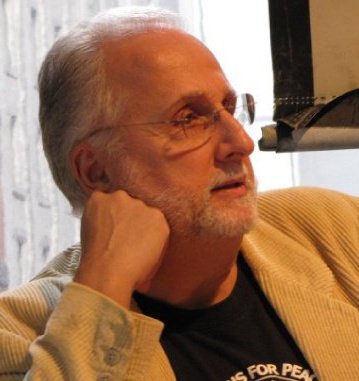For many of us aging warriors, it has been years since we have faced the insanity of the battlefield, of man's inhumanity to man. Yet, it haunts us still. It is the nature of war, I think, that we can still recall with frightful realism, the rifle butt and bayonet that forced a weary body to continue the seemingly endless trek of the Bataan Death March. Despite the passage of time, we remain unable to appreciate the gentle beauty of a snowflake without recalling the blood stained snow banks of the frozen Chosin Reservoir. Not a day goes by, I think, that we do not recall the devastating screams of a comrade who died in our arms while taking and then giving back a useless and desolate hill top in the Central Highlands of Vietnam, or wake up screaming as we relive the horror of the bloodstained streets of Fallujah.
It is the nature of war, I think, that we shall never forget and need no holiday to remind us. As warriors, we may know little of the politics of diplomacy and international affairs. But no one knows war better than we who did the fighting, and the killing, and the dying, and the grieving. For we are neither war's initiators nor its beneficiaries, we are its victims.
In basic training, we were conditioned to put aside the lessons of our youth, of our parents, teachers, and clergymen who stressed the importance of compassion, understanding and loving our fellow man. We were transformed into warriors capable of unleashing untold horrors and devastation. The legacy of war, therefore, is not of honor or glory, for such virtues can never be derived from causing the death and suffering of so many of God's children. War is in fact hell as is living with the memories and nightmares.
On this Memorial Day, I do not celebrate the successes and victories of wars long gone or those currently being fought, as war is not a cause for celebration. Rather, it is a day like any other in which I remember and grieve the deaths of those who fought at my side and those against whom I fought. The warrior is conceived in the womb of battle, breathed life in the midst of suffering and death, and lived, loved and hated with such intensity that life ever after loses its meaning. I believe, sometimes, that death in war is benevolent, and those who died more fortunate than we who are condemned to live as penance for the sacrilege of war.
This bond or brotherhood of the warrior, or better, of victims, is sacred to us and it has become our purpose to ensure that those whose lives were sacrificed on the beaches of Normandy, at the Pusan Perimeter, at Khe Sahn, in Haditha, and at so many other beaches, jungles, and cities too numerous to mention, should never be forgotten. We certainly shall never forget them as they have touched our lives so deeply, and their young faces visit us so often in our dreams. And those of us who truly know war, will never allow others to forget them either, nor profane their memory by using their sacrifices to encourage other young men and women to march blindly off to battle for a cause that is misguided or nonexistent.
(Note: You can view every article as one long page if you sign up as an Advocate Member, or higher).





